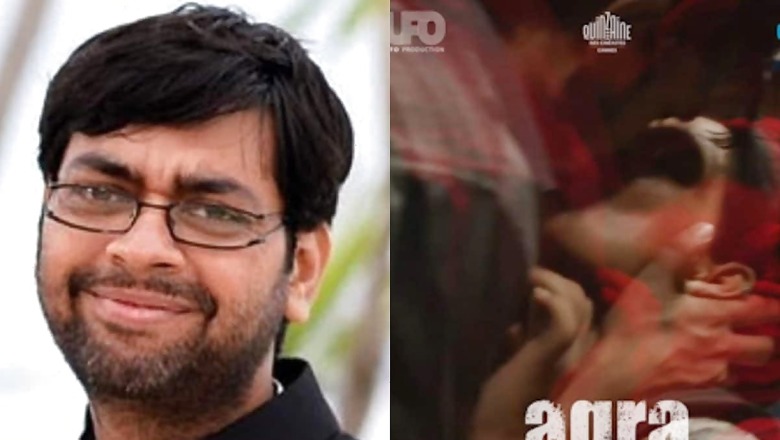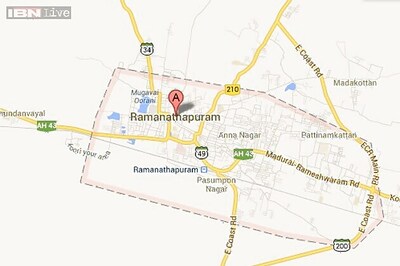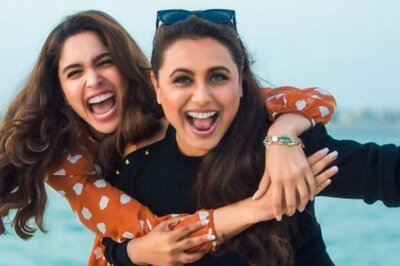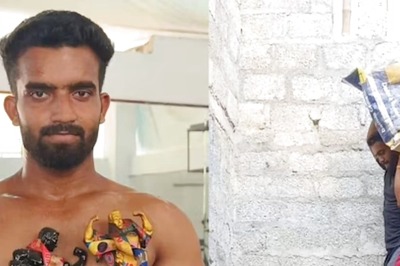
views
Kanu Behl made his foray into fikm-making by assisting Dibakar Banerjee in Oye Lucky Lucky Oye. He followed that by co-writing another critically-acclaimed film LSD: Love Sex Aur Dhoka, featuring names like Rajkummar Rao, Anshuman Jha, Nusshratt Bharrucha among others. However, it was his directorial debut Titli that put him on the map as a visionary film-maker. After a long wait, his latest film Agra saw it’s premiere at 2023 Cannes Film Festival and Indian Film Festival Of Melbourne 2023.
The drama film starring Rahul Roy, Mohit Agarwal, Priyanka Bose, Ruhani Sharma, Vibha Chibber, Sonal Jha and Aanchal Goswami traces the themes of repressed sexuality and the rampant patriarchy slowly rotting the socio-cultural setup. In an exclusive conversation with News18 Showsha, Kanu Behl opened up about his film.
Tackling a subject like that, that too in a country like our, how much mental preparation you had to do before embarking on this project? What were some of the initial pitfalls and how you navigated through them?
It’s always difficult when you are making a film like this. Right at the outset, you know you are tackling a subject that doesn’t easily find financers or producers. So you always vary how this film will get made. But there’s a bigger battle that a film-maker fights which is the battle of being scared within. How much do we want to push the envelope on this film. And that battle is sometimes subconscious. Sometimes you don’t even know you are fighting it, while you are. For me, it was one of the biggest journeys that I had to undertake with the film, where for about a year, I was writing the film but I was not fully pushing all the buttons. I think I was a little scared. And then I was fortunate enough to go to a residency where my mentor was Mauli Sensgard. Thanks to that period, where the script was being written and her feedback, I realised I was not opening all the doors that I needed to, for a film like this to make sense. Once I realised that, that was the first major battle won because I stopped writing for a couple of months and I just sat down and asked myself whether or not I actually want to make this film. If you truly want to say, what you are feeling, and if you have the courage and capability to tell a story like that. And once I got the answer that I feel strongly about this film, then most of the problems were secondary problems. Then it was how to figure the best way to make this film and from there on, the film takes a life of itself.
From what I gathered, Guru is not a one dimensional character in any way. It draws from realism and because it draws from realism, the challenge for you to get into the convoluted psyche of his must have required a lot of . So describe that whole process as to how you could channel all those layers in your protagonist?
It was not that difficult because somewhere the film was very personal to me. Even though it changed a lot while writing, but the central feelings that Guru had felt, I think I have felt the same things growing up as a young boy, even till the age of 24-25. I’ve tackled and dealt with some similar feelings myself. And that’s where the seed germinated from. So to a certain extent, I knew Guru, I recognised him and I knew the guy I wanted to talk about. The thing that I realised was ‘Yes, I felt some of the sexual repressions that Guru had felt but I had not felt it to the degree that Guru feels in the film’. That is where I was a little vary because I felt this film shouldn’t look like a ‘copout’ or a medium where I am showing that this is what a sexually repressed man looks like. Because all said and done, I am a middle-class, upper middle-class boy who had grown up in a three bedroom house in East Delhi, in not a very expensive area. But I did have a little bit of privilege while growing up. That privilege Guru doesn’t have. So after a point, I knew I had to go on this journey where I have to understand him better and the degree of his sexual repression, to be able to write this film truthfully. And to go on that journey, I had to incorporate certain tricks which were risky and difficult. For example, I spent about six months visiting sex chatrooms myself and sometimes posing as a woman talking to random boys, sometimes being myself, sometimes being other boys and trying to do a lot of research around what is happening, what is getting talked about in these black holes and how people are able to express themselves more openly when they know they are not being watched or that their identity is protected. And that research made a lot of layers of the character emerge on top of what I already knew. That’s where some of the characters’ outline came from and what you see in the film came out of it.
Coming to the name of the film and the setting of the story i.e Agra. What was the idea behind that? Why Agra and whether that holds any significance to your film.
The name of my film Agra comes from Agra’s mental asylum, which was at one point, the largest mental asylum in the country. But whenever you hear the name Agra, I feel the first thing that comes in people’s minds is not Taj Mahal but the mental asylum itself. And when I was writing the film, I wanted the name to indicate that kind of a madhouse-ness. Because the house in which the film takes place is full of troubled and repressed people. So I wanted the metaphor of mental asylum to always be like a shadow that hangs over the film.
Coming to the actors, how did you rope Mohit Agarwal, Sonal Jha and Rahul Roy? How did they exactly fit in the world or the story you created?
It was quite a journey behind selecting the cast of the film. For Mohit, we were auditioning in five different cities and I always knew that the character is such a difficult character and he is doing such difficult things in the film that it’s hard for anyone to comprehend. I always knew I would need an actor who is not very intimidating or who has some sort of presence where he has a certain vulnerability about him. So one can empathise with him while going on this journey with him. We were doing workshops with three good actors but I think what eventually worked for Mohit was he is so vulnerable. Apart from his acting, his openness feels like staring into a mirror, when you look into his eyes. Similarly, for the role of the father, who is a womaniser in the film, and runs after multiple women, I wanted someone who is a charmer, who is a ladies man and yet has a certain feeling of decay about them. And I have seen Rahul Roy, his own life has seen both aspects and both sides of the coin very, very closely. When he started playing with Daddy’s part and when we started the workshop, it was as if he cast himself in the role. I remember one day, Rahul walked in and said that ‘I am going to do this role and nobody else’. So there are interesting stories about the casting of all the protagonists of the film.
What was your experience working with Rahul Roy. I was watching a recent interview of his and it was really heartbreaking to see him asking for work. Regardless of the stroke that he suffered, how was he on the sets of your film?
It was an absolute pleasure working with Rahul Roy. He is one of the most professional actors that I have ever worked with. And he is so dedicated. Not for a moment, does he step outside of the park, not for a moment do you realise that you are working with a very big star or an actor who has a pedigree. He is so hardworking and was so deeply involved with the part that he’s playing. Sometimes with younger actors, they can be a little lazy and you have to reprimand them. But Rahul Roy is experienced and he has worked with great directors, so it was a pleasure to have him as a part of the film.
Coming back to the theme it explores, I believe most people in the country like to live in denial that something like sexual repressiveness exists when in turn, they have let it thrive unbenowst to the repurcussions. On top of that, if a film-maker like yourself tries to throw light on that, you’ll have to face several hurdles to even present something that you have created. And I am sure when you decide to release it her India, you’ll have a tough time convincing others. So what can facilitate a change in perspective on these topics? And whether such hurdles demoralizes film-makers to tackle unconventional stories?
This is a much larger discussion. It cannot be seen, just in the prism of a film that deals with sexuality. Any film-maker today who is trying to push the envelope towards a certain kind of content that is mature, nuanced and that is trying to engage the audience, rather than treating them like children who have only come to the theatre to have popcorn and Pepsi and you want their money and just get done with them after the screening. If you are not trying to do that and if you are genuinely trying to engage with an audience, today it is very difficult for any film-maker, working in any region. And that difficulty is related to the socio-political-cultural context that we live in. To the amount of structural support that you have for a certain kind of cinema in the country, that needs to be looked at by the policy makers and that space needs to be actively created. That space is promoted in most of the Western countries. The shining beacon of that are the French who makes sure that any film which has come for a film festival, including in their own country, there is a mandated theatrical release for that film and there’s no other way. So there are other cultures that treasure their artistic endeavours in numerous interesting ways. And maybe it’s time that we look at those cultures and we look at our artistic space and we reevaluate the kind of nuance we have in our culture and what we want to do for the continuous slide of nuance. We are just seeing more and more kids film out there or PSAs.
What is your take on mainstream film-makers and films that try to highlight such themes in a simplistic lens ofcourse. A recent example of that would be OMG 2 which again was in a shroud of controversy regarding it’s underlying theme of sex, masturbation etc. Do you believe a simplistic or commercial approach on important topics like these only taints the narrative? Or is it the other way round?
Absolutely. And here I am not talking about any specific film. I don’t want to comment on OMG 2 or any other film. But these are all kids films. I don’t treat them as films, I don’t see them as films. Or let’s just say I don’t look at them as cinema. I went to a government sponsored film school and I had my cinema education on taxpayers money. And I am very cognizant of that. I want to respect my audiences and I want to treat them as adults and I want to engage them in conversations. I don’t want to come to your cinema halls or to your homes via OTT and give you a sermon. Audiences are way, way smarter than any of us film-makers and they know what lives are, because they are living those lives everyday. This is not the cinema we should be aspiring to or this is not a cultural space that we should be creating for ourselves. Because eventually, if you stop seeing the nuances in the cinema, that means those nuances are fading away. And if they are indeed fading away, as balanced human beings, while sitting in the centre, one has to understand the tiff between left and right, to understand where the disinfranchisement is emanating from. If we don’t have the capability to hear either side,
in a calm and nuanced, balanced way, then what’s the point? That was one of the strengths of our culture, over the years. That is what has made India as a land really special that we used to listen to both sides. So the absence of nuance is a much larger malaise and the absence of it is what you are seeing in the cinema.

















Comments
0 comment